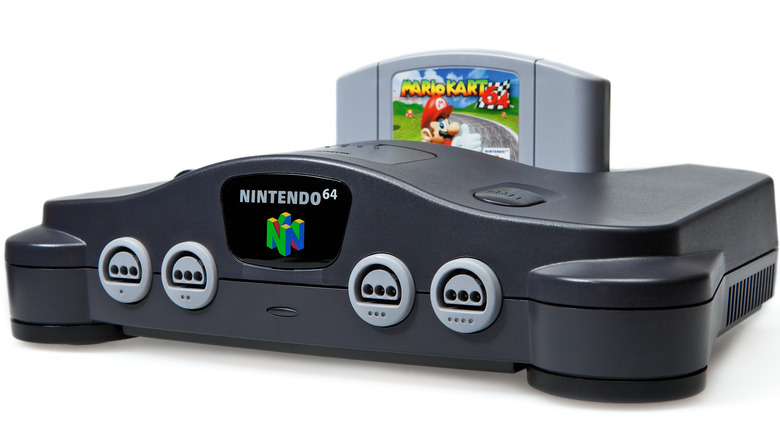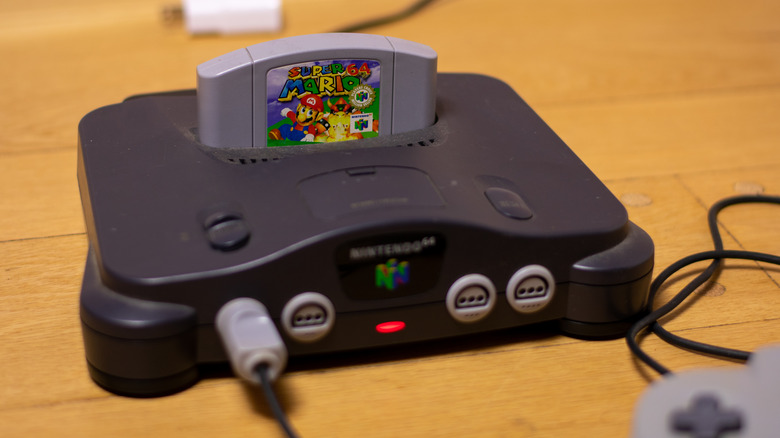Why Nintendo Had To Emulate The N64 On A Supercomputer For Most Of Development
Emulation is a touchy subject in the modern age of Nintendo gaming. Whether it's with relation to fans arguing over the legality of using ROMs on third-party emulators or users decrying broken titles on Nintendo's Switch Online service due to shoddy emulation, it's simply not a term that inspires a lot of warm sentiments in the gaming community. However, what even many die-hard Nintendo fans may not know is that emulation was actually key in bringing one of the company's most beloved consoles to market.
Rather than the usual story of developers testing software out on development kits of new consoles, Nintendo took a markedly different approach with the Nintendo 64. As it turns out, the company spent most of the 64-bit system's development cycle testing its software on an advanced supercomputer, rather than the hardware itself. While such a process may sound counterintuitive, the Big N actually had a pretty good reason for doing so.
The N64 itself wasn't finalized yet
Nintendo's use of a supercomputer for testing N64 software was on account of the actual hardware design not being finished yet. In an interview with Eurogamer, former Nintendo programmer Giles Goddard recalled the N64's surprising process of pre-launch software development. "We didn't actually have any final hardware for a long time, so what we were doing is we had a huge Onyx supercomputer in the backroom at Nintendo that was basically emulating what the hardware would be eventually," Goddard explained. "That was quite a good system, because they would just update the hardware virtually. And we could test out on a virtual N64, which was really cool."
Those with knowledge of the launch of the N64 know the system came in rather hot. While it was originally scheduled for release in late 1995, Nintendo delayed the console, eventually bumping it to a mid-1996 debut (via The New York Times). Based on Goddard's account and the issues in getting the final product out the door, it appears that the N64 had a complex development journey with hardware revisions and iterations extending late into the cycle.
While the Nintendo's 64-bit system may have had a strange development period, it still managed to carve out a lasting legacy both through groundbreaking titles like "Super Mario 64" and N64 hidden gems like "Jet Force Gemini." It seems that spending that extra time finalizing the N64 hardware worked out in the end.


